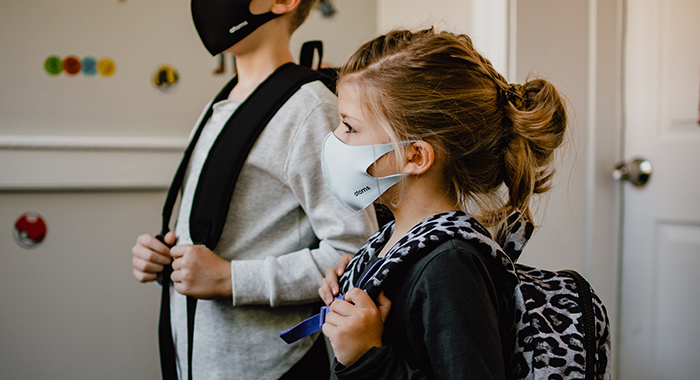
Key elements of wellbeing
Dr O’Grady uses Dr Martin Seligman’s PERMA model as a helpful baseline for wellbeing and to explore various concepts that make up wellbeing.
'Wellbeing is not one thing. It's made up of many different things, some of which are quite abstract,' says Dr O'Grady.
The PERMA model comprises of five elements: positive emotion, engagement, relationships, meaning and achievement.
'We know that humans are social creatures, and relationships are really important. In the PERMA model, they talk about authentic connections and relationships being core to our wellbeing,' Dr O'Grady comments. She has observed how relationships have adapted during the COVID-19 pandemic; many having shifted online to try to maintain connection.
'For some people, that face-to-face relationship is what's really important to maintain that authentic connection, and if they're not able to see people, they may have lost a bit of that connection.'
Factors that impact wellbeing
'There are many things that impact our wellbeing, and it's important to think about which areas we have input into and which areas we can own. Recognising what we can and can't control can be really helpful,' observes Dr O’Grady.
Several factors can impact an individual’s wellbeing, for better or worse:
- Personal factors, including health and family life
- Social factors, such as such as our relationships and faith
- Systemic factors, such as employment


The impact of extraordinary change
Dr O'Grady talks about how we respond to different times of change or crisis.
‘Following natural disasters there is often a heroic honeymoon period where you hear stories of people coming together, and heroes stepping up,' she explains.
Over the past two years, the pandemic has introduced a different cycle of impact that many of us haven't experienced before.
'The impact of the pandemic is still happening,’ Dr O'Grady adds. 'Life has changed, and it's not the same as it was.'
Dr O’Grady says that this is when resilience kicks in. When people experience a significant challenge that they must adapt to, the generally do it quite well and may discover new strengths. Others are more vulnerable.
Dr O’Grady encourages educators to be mindful of behaviours resulting from these types of challenges, such as substance abuse, violence, isolation and withdrawal.
How educators can support wellbeing
Dr O'Grady highlights the value of consultation and shared decision-making between school leadership and teachers to successfully implement a wellbeing strategy.
Creating stable routines, focusing on behavioural self-regulation skills, and developing policies and training that support wellbeing are essential areas where schools can invest time and energy.
During uncertain times, Dr O'Grady says that everyone will experience some degree of anxiety and recommends monitoring people who may be struggling.
'We need to normalise stress reactions. This is a stressful and difficult time. We need to normalise what we can. Listen to each other. Connect those who need it with the right support.'
Dr O’Grady points to Employee Assistance Programs and GPs as a good place for educators to start if they need additional support. She also explains that some of the most valuable tools educators can use to support student wellbeing are demonstrating compassion and emotional agility.
‘Developing emotional agility and compassion for those who are struggling will help us to respond more constructively to the challenges in front of us.’ She continues, ‘asking ourselves about how we can look for change and embrace change, so we open ourselves up to new ways of working will ensure we continue to thrive.’
In the spirit of Seligman’s PERMA model, Dr O’Grady notes, 'all of these suggestions are connected to resilience and meaning and other concepts of wellbeing.'




